One of the things that draws me to texts like the Tao Te Ching is its inherent contradiction. The text highlights the precipitous balance between doing and non-doing, between light and darkness, and between the constant and the fleeting. These are the same contradictions that exists in the concept of the sublime and the mantras “samsara is nirvana” and “the obstacle in the path becomes the path.” Wrestling with these ideas forces you to balance on the knife’s edge of awareness as you go with the flow of the universe — and at the same time, keep hold enough not to become solely a passive participant.
Living radically requires navigating that same dichotomy. To do so means to live authentically, accepting the ups and downs that are thrown at you. You must observe the world with your eyes wide open and act and react to the circumstances in which you find yourself — not the circumstances that you wish you had. At the same time, though, you can’t drift rudderless through life. You need actively pursue that which interests you, seeking out challenges to hone your edge and keep yourself sharp. You can’t just let life happen to you — but I also don’t believe you can force your will upon the world.1
I was thinking about that juxtaposition the other day as I was thinking about parenting.2 About the balance between guiding my children through life and allowing them to find their own path. About how to introduce them to the things that interest me and the traits which I value, but simultaneously not forcing upon them my own worldview. About how to transmit the little bits of wisdom I’m trying to accumulate without being overly didactic.3 About how to live a life deeply rooted.
The best I’ve come up with so far is the idea of intention: setting one for the way in which I seek to live my life, and then using that as a guide to how to interact with the what is thrown at me. I use radical living as that intention — to live more openly, more authentically, more connected to what matters. It’s an evolving set of guide posts, but one which, so far, seems to be helpful. And, if it begins to lose its value — well, I guess that’s a sign to make a shift.
There’s all the radical proselytizing I have for you today. I’ll leave you with the rest of the ploughman’s lunch: some (a lot, really) writing I’ve particularly enjoyed over the last few months, some observations that have been inspiring me, and some food we’ve been eating.4
We’ll see you back here next week with our regular programming.
I. Reading
gets to the heart of radical living in this essay about the need to restore connection in our lives. Our understanding of the world can’t just be garnered from what we’ve read in books or watched online or heard about in a podcast — we need to be out there living it. In Part II, he goes on further to flesh out the analogy of “building good soil” by giving concrete ways to apply it to raising well-rounded kids — and adults, really.5Self Command in the Age of Anxiety —
reflects on this disconnect with reality to its extreme endpoint: the cause of crippling anxiety. For when we don’t interact with the world — only catastrophize worst-case scenarios in our mind — there’s nothing to ground us. We’re left only with fear. And as Sam so poignantly writes, “[the biggest] threat of our age is not death but a life unlived.”Do Real Things in the Real World — One might start to sense a theme in what’s resonating with me lately, but this piece by
argues that doing real things in the real world — lifting weights, swimming, gardening, hunting, hiking, woodworking, and so many others — roots you in reality and gives you something concrete to which to anchor yourself. And, it’s hard to be an “egotistical jerk” when you have that groundedness.The Creative Fight — We’ve established that doing things — and hard things especially — gives you a broader comprehension of the world, help keeps anxiety at bay, and counterbalances egotistical tendencies.
also argues — and I believe him — that the fight required to do these things also makes you more creative. This is another form of that balance, of those juxtapositions: where “the confluence of physical challenge and creativity… fuels the inner fire.”Learning the Lingo — This lovely piece by
emphasizes the importance, again, of not just being bystander in your pursuits, but in actually participating in them. You may grasp something conceptually — how to call in a turkey, how to read a river, how to field dress a deer — but only by “being in the hunt” can you truly understand it.Leave No Trace — There’s a quote from Mushashi’s Book of Five Rings that I love: “Think lightly of yourself and deeply of the world.”
encapsulates that mindset — and that of radical living — in this guide to finding the Beginner’s Mind (which, really, should be called the Expert’s Mind — another contradiction!). I’ll quote him here, since he nails it: “This is where we learn to approach the familiar with [the Beginner’s Mind mentality]: open eyes, open mind, full commitment. This is where the true challenge is. Technically, we’re no longer beginners here; in fact, it’s quite the opposite.”Stop Trying to Curate Everything — My friend Seabass sent me this essay from
on how to live an authentic life. The whole thing is worth a read, but it comes down to this: you need to build an authentic life authentically; there are no shortcuts. You can’t create that life with force, but instead, need to let it accumulate organically. You need to learn to live with the mess, embrace the chaos, and accept what you’re given. You can — and should — have a guiding intention, but sometimes, things will naturally happen when they’re meant to happen. ’s essay on how there is no easy way out, no shortcut to success dovetails nicely — if more roughly — than the What Ever Happened essay above. As Mark bluntly states, results take hard work and time. By knowing and accepting your “actual conditions” and defining “realistic goals,” you’ll be able to achieve the things you want — but you can’t just sit around and expect a miracle. (There’s that active vs. passive balance again, by the way.)Defining Enough — Those of you who have been reading for awhile know
and I talk a lot — so it was nice to read his reflections on a conversation we’ve had a number of times about finding balance. Here, he touches on the themes of the week: doing real things to root you in the real world, but also not letting those things define you or cause undue anxiety. It’s a delicate line to walk on, but I think by acknowledging that there even is a line, you’re already ahead of the game. metaphor of social media as the background, muted TV at the bar is terrific. Living a life behind the screen may be distracting, may even feel productive — but at the end of the day, much of it is meaningless. You need to get out, live your life, and put an effort into creating something real. For Foster, his muse is hunting — forcing him to put more effort into his photography and writing — but it could just as easily be any that puts your hands in the literal dirt.Embrace Chaos — Radical eating forces you to cook with what you have and what is in season, not just cook whatever you want.
illustrates this concept perfectly through the lens of wild game, where you the importance of recognizing what you have when crafting recipes — how a mature buck will cook different than a two-year old doe. This might cause consternation if you’re too rooted in your ways — trying to impose your will on the world, so to speak — but can be a creative challenge if you’re willing to embrace the chaos and uncertainty, ultimately yielding a better dish.Trusting Our Kids to Become — I’ve been enjoying
’s thoughts on parenting, as they align so closely with my own. This essay discusses the — you guessed it — importance of allowing your kids to experience life on their own terms in order for them to grow. It’s just another balance with which we need to contend.The Currency of Authenticity —
writes about the balance he looks for when determining what brands with which he decides to work. His definition of authenticity — which “requires discipline, patience, and the willingness to turn down opportunities that don’t align with your values” — is powerful and a great litmus test for how you might consider approaching your own life.26 Candles — In his birthday reflections,
perfectly encapsulates the contradiction with which I started: the need to balance control and surrender, the desire to know and the excitement of anticipation. I think to acknowledge this struggle is, in itself, the first step toward learning to grow from it. There are no clear answers on the path through life, but Cliff sets a good intention for how to live his next chapter.Comfort in Darkness — As I’m diving into my jiu jitsu journey, I found this recollection by
on his time spent with Rickson Gracie fascinating. Because really, how could this not resonate with me?For Rickson Gracie, his art is not a sport; it is a philosophical practice. To him, the most interesting aspects of martial arts are not the techniques, but the invisible elements—the ever-changing senses of touch, weight, and momentum.
Most of All, Endurance — I stumbled upon
’s work recently and tremendously enjoyed reading his conversation with Jonnah Perkins from MAD Agriculture. This post is a great summary of the conversation, especially as he describes the magic of “simple curiosity” and how he is “learning to let the landscape move through” him — both of which are ideas central to radical living.6The Paradox of Patient Urgency — This piece by
perfectly describes the balance with which I’m so fascinated. How to respond to the urgency of the day while simultaneously attempting to solve long, complicated problems that require patience. How wins balance loses. How he can feel despondency when change doesn’t happen fast enough, but feel elation when looking at his children, at “early morning surfs, [at] feeling the hum of nature's rhythms,” and at his “connections to friends and family.” That’s the balance that’s so important. writes beautifully about balance and the struggle to find it amongst the things he — and you, and I, and everyone — feels compelled to do. His sense of “tewatatakénrakte” — “[a] Mohawk have a word [he] cannot pronounce” — is one that I feel, too. The essay is fantastic and Josh should take solace that he is “one of those mofos” he admires.Stuck in the Cul-de-Sac — We’ll close out with a final piece on balance.
discusses the absolutely necessary balance between enchantment and disenchantment and how we’ve tilted the scale in today’s society, all through the lens of the left versus right brain. Neither is right, neither is wrong: It’s all balance. But, as Adam argues, we’ve perhaps shifted too far to the left (brain) — and it’s time to bring some of that wonder back to our lives.7II. Observing
III. Eating


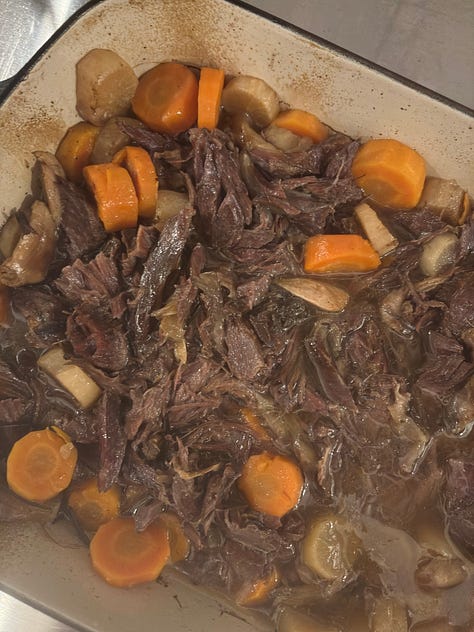
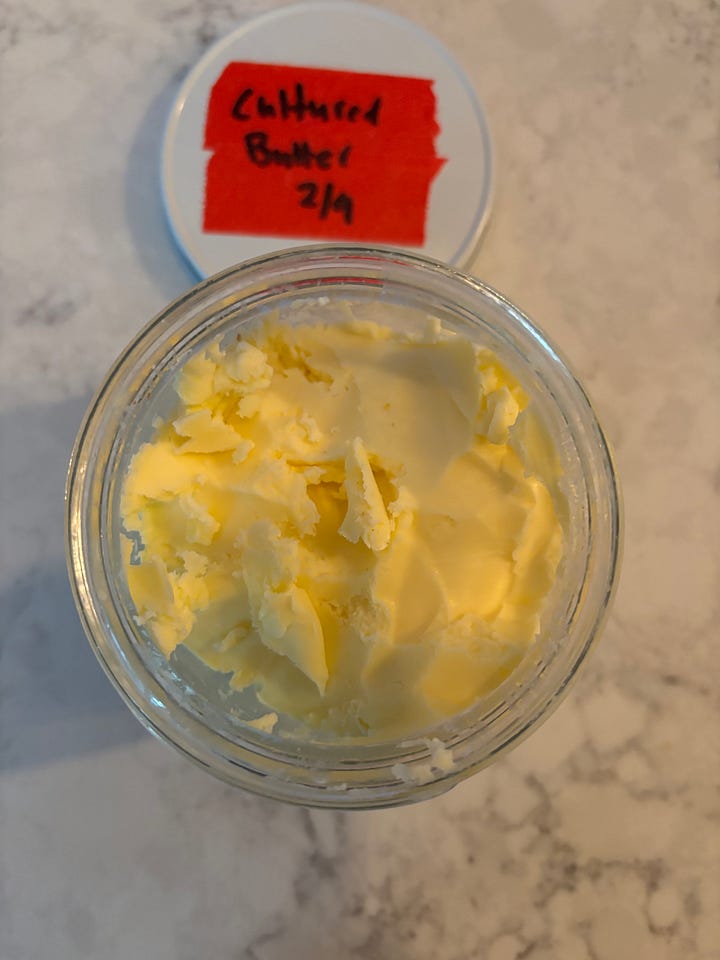


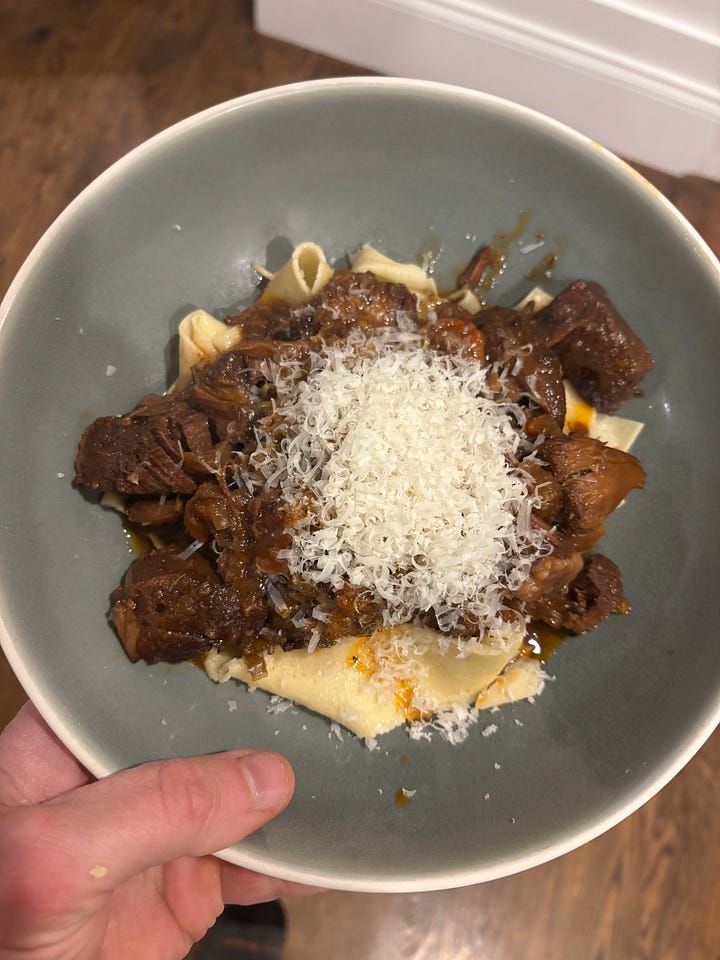
This balance shows up, too, in jiu jitsu — where you have to both set the course of your grappling, but also be equally open to adapting based on what your opponent is doing.
Or: “Everybody has a plan until they get punched in the face.”
Not that I ever really have a plan at this point in my BJJ career — I’m all reactionary. But the concept still stands.
I’ve written before about my revelations about parenting which came from reading Rick Rubin’s The Creative Act.
There’s a similar balance I struggle with in my own writing. How can I relate my ideas, values, and opinions — which, by nature of being my own, I think are important — without coming off as overly dogmatic and authoritarian. How can I write in such as way as to let the ideas speak for themselves, without forcing my own personal preferences upon you, the readers.
I’ve read a ton of terrific stuff on Substack over the last two months, so I’m trying to balance an appropriate number of links here with a general adherence to the theme of… well… balance!
Please let me know if this list fields too unwieldy. I’ve been publishing these round-ups roughly every two months to allow for more real writing (and recipes, sometimes) — but I also want to make sure I’m doing justice to the essays I share and not overwhelming you as readers. Feedback is appreciated.
That whole essay, by the way, could be a primer for radical living — and I’ve printed it out for future study.
Nicholas also has a book coming out which i immediately pre-ordered after reading the interview.
Phillip Pullman is one of my favorite fiction writers. I’ve revisited both His Dark Materials and The Book of Dust trilogies in recent years and have taken far more out of them as an adult than I did as a child. I’m excited that the final book of the latter trilogy is expected to finally be published this year.
I bring Mr. Pullman up because a recurring theme in his work is the idea of a “Secret Commonwealth” — which is the secret (obviously), parallel world to ours of the mundane and scientific. It’s a world that is home to fairy queens and river gods, enchanted inns and ghostly ferries. It’s this world that Lyra and the other protagonist live in; their access to it allows them a more enlightened view of the world. When the characters lose touch with this enchantment, however — that’s when bad things start to happen. This, coupled with the human-daemon relationship functioning as a physical embodiment of that left brain-right brain split, and you’ve got yourself some ideas worth pondering on.
Observations from my personal camera roll and screenshots from stuff I’ve read or browsed over the last few months including posts by
, , and Rickson Gracie’s Breathe: A Life in Flow, and I’m sure some others of you — my apologies if you were missed. I’m trying to do a better job of documenting the source of these screen grabs.








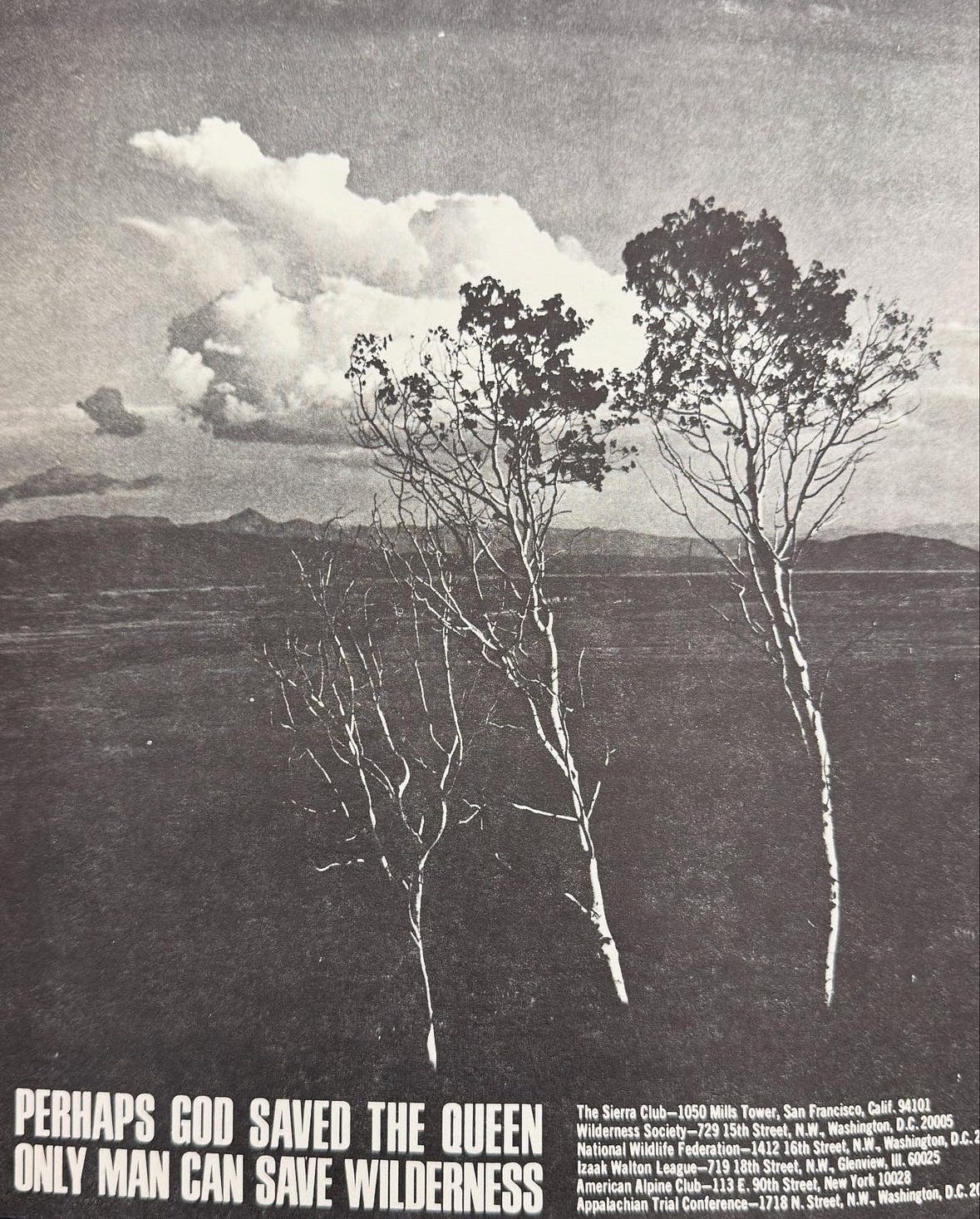

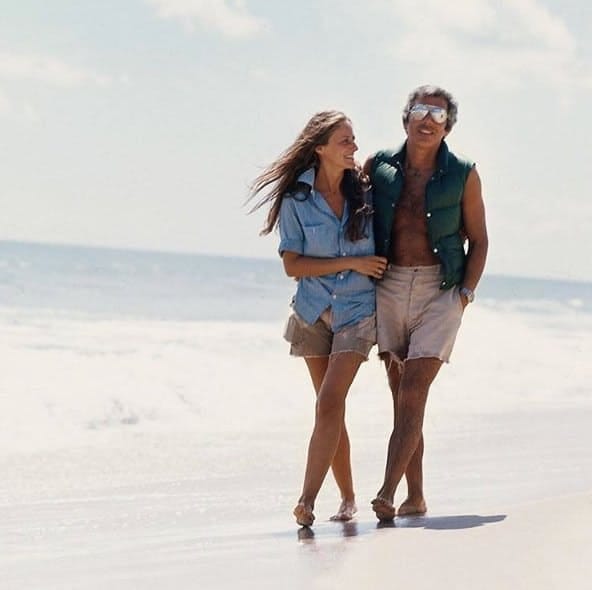




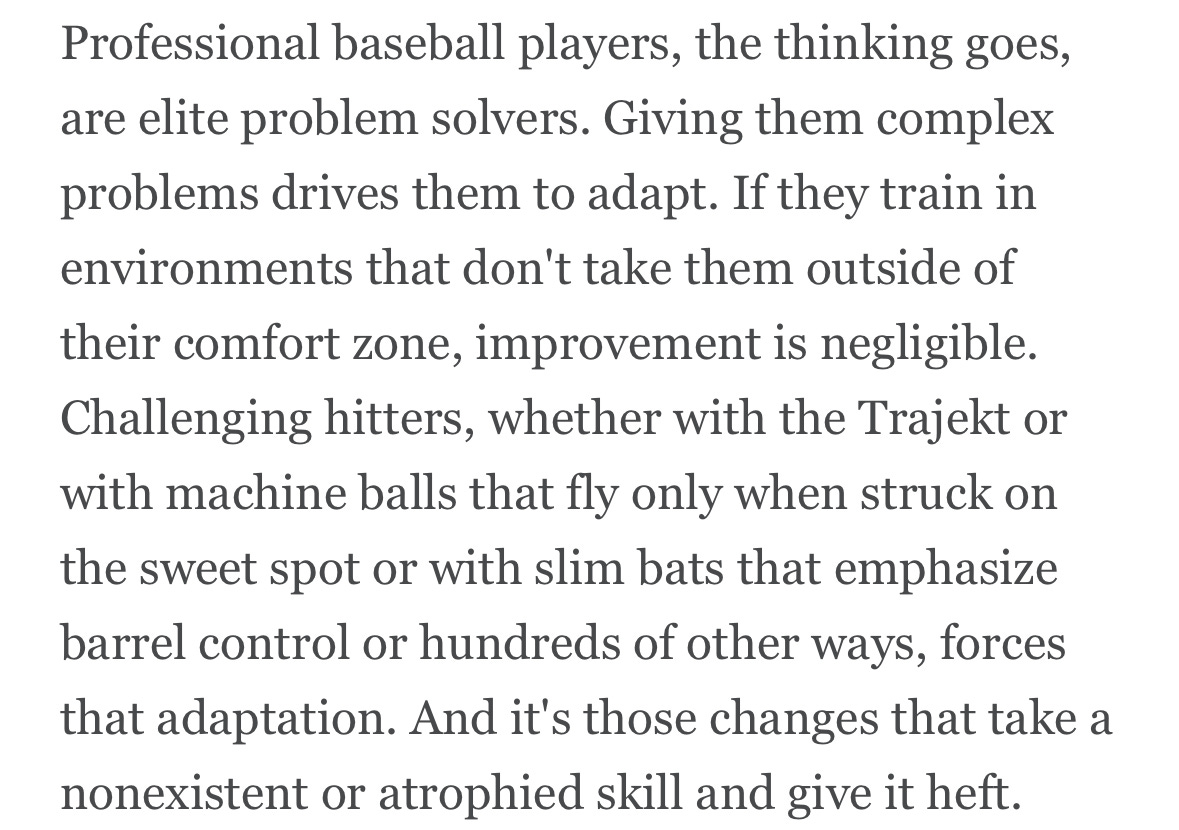

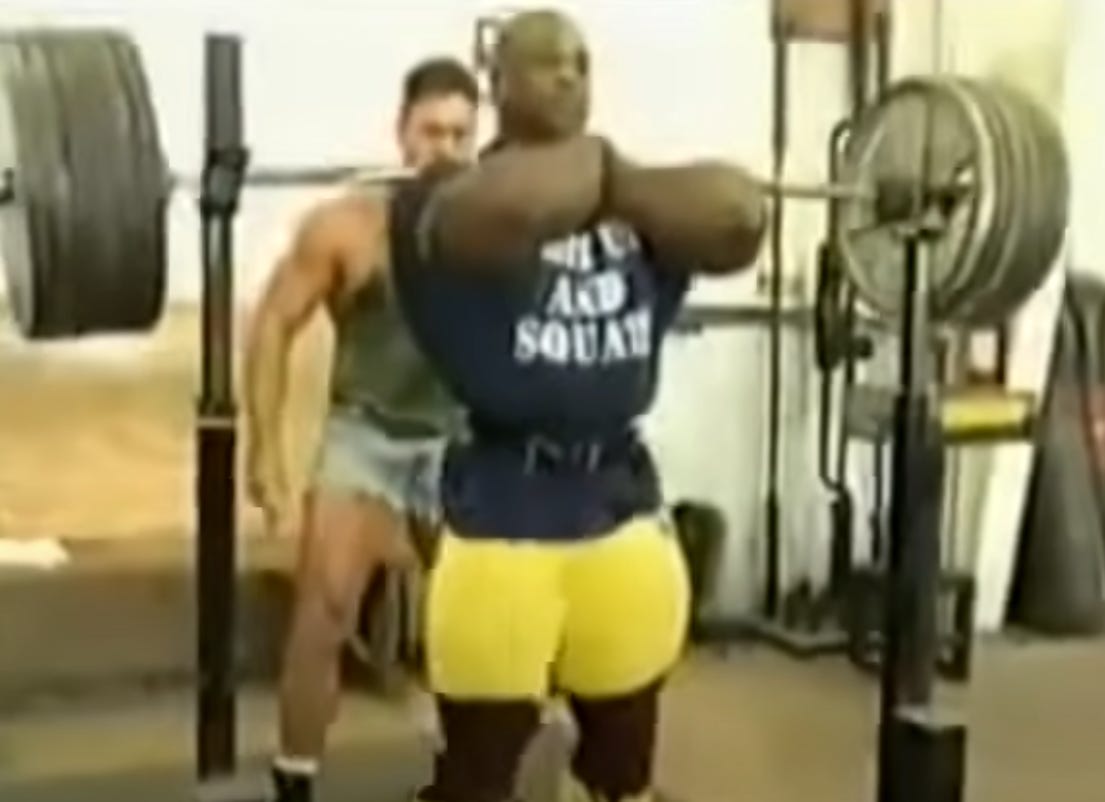
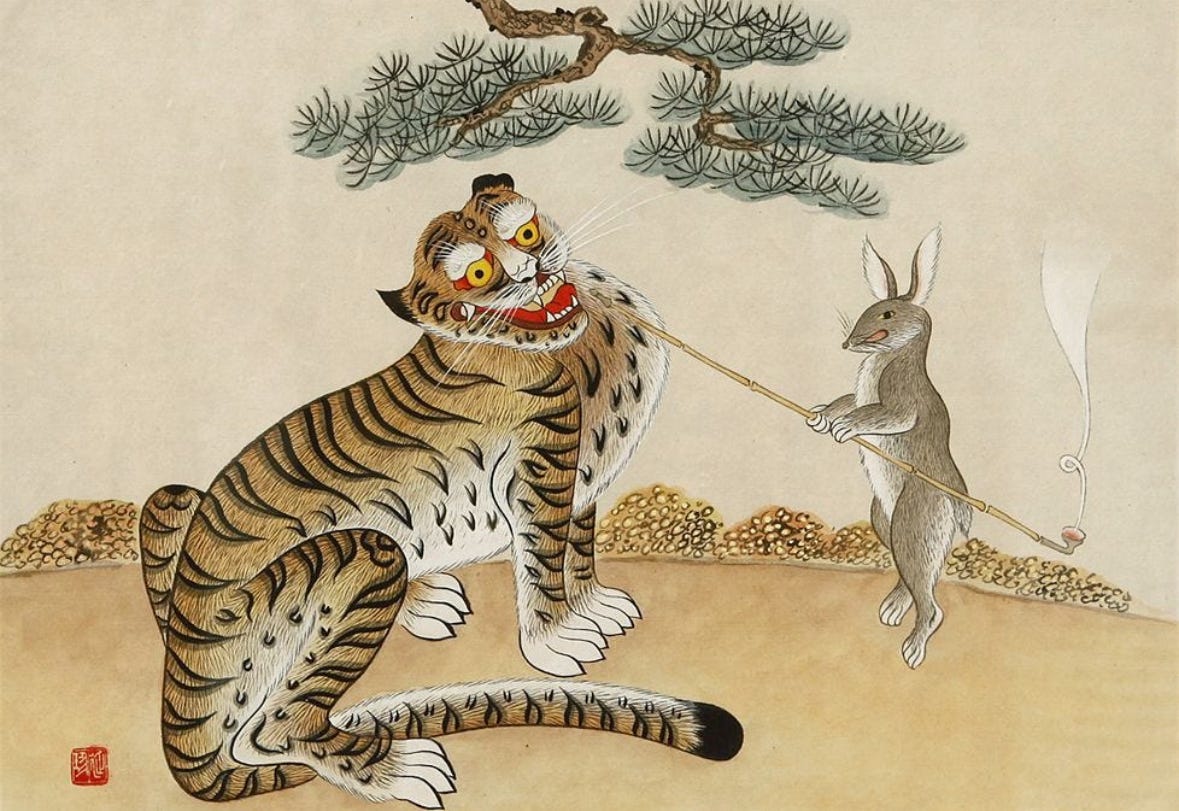


Thank you, sir!
Thanks for the shout out, Lou! Great post.